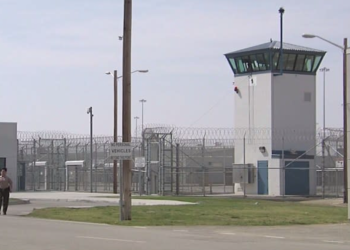Wendy Ortiz was shocked to learn she was being fined by U.S. immigration authorities. But the real jolt came when she saw the amount: $1.8 million.
Ortiz, 32, works at a meatpacking plant in Pennsylvania earning $13 an hour. She fled El Salvador a decade ago to escape gang violence and an abusive partner, she explained in both an interview and immigration paperwork. Her income barely covers rent and expenses for her 6-year-old autistic son, who is a U.S. citizen.
“It’s not fair,” she said. “Where is someone going to find that much money?”
In recent weeks, President Trump has begun implementing a plan to fine migrants who stay in the country after receiving final deportation orders. According to a senior Trump official, 4,500 migrants have been issued notices with penalties totaling over $500 million. The official spoke anonymously to share internal data.
Eight immigration lawyers interviewed by Reuters confirmed that their clients received fines ranging from a few thousand dollars to $1.8 million.
Those fined were given 30 days to submit a written, sworn response explaining why the penalties shouldn’t apply to them.
This fine strategy is part of Trump’s broader effort to pressure undocumented immigrants to leave voluntarily—or “self deport.”
As first reported by Reuters in April, the administration’s plan includes a daily fine of $998 for those who stay in the U.S. after a deportation order. These penalties could be retroactive for up to five years, meaning some could face the maximum $1.8 million. If they can’t pay, the government may attempt to seize their property.
It’s still unclear how officials will enforce fine collection and property seizures.
Fines reviewed by Reuters were issued by U.S. Immigration and Customs Enforcement (ICE), but Customs and Border Protection (CBP) was tasked with processing them and managing property seizures, Reuters previously reported.
A CBP official, also speaking anonymously, said the agency is still sorting out how to handle the complex logistics of seizing property.
The U.S. Department of Homeland Security (DHS) did not respond to a request for comment. However, DHS spokesperson Tricia McLaughlin stated in April that immigrants living in the U.S. illegally should “self deport and leave the country now.”
These fines are tied to a 1996 law that was first enforced in 2018, during Trump’s initial term. It targets about 1.4 million migrants who have been ordered deported by immigration judges.
Previously, Trump rescinded hundreds of thousands of dollars in fines levied against nine church-sheltered migrants after legal pushback, although smaller fines remained in place. The Biden administration later dropped the fines entirely in 2021.
Robert Scott, an immigration lawyer based in New York City, said he was stunned when a low-income Mexican client—who’s lived in the U.S. for 25 years—received a $1.8 million fine.
“At first you look at something like this and think it’s fake,” Scott said. “I’ve never seen a client receive anything like this.”
His client was given a final deportation order in 2013, but Scott said she wasn’t aware of it. She has since filed a motion to reopen the case, which is still pending.
“She hasn’t been hiding,” he added. “It’s puzzling. I don’t know if it’s random or if she’s just an easy target.”
Seeking Relief After Being Targeted
Ortiz crossed the border in 2015 and was initially released to pursue her asylum claim after an officer found she had a credible fear of persecution, her documents show. However, she said she never received notice of her immigration court hearing and was ordered deported in 2018 for failing to appear.
On Jan. 8, her lawyer submitted a request for humanitarian relief, arguing that Ortiz faced serious danger in El Salvador and that her son wouldn’t have access to autism-related services there. The petition requested “prosecutorial discretion” and asked to reopen and dismiss her case.
Just 12 days later, Trump returned to office and began ramping up his immigration enforcement efforts.
Ortiz’s attorney, Rosina Stambaugh, has asked for a 30-day extension and is exploring legal avenues to contest the fine.
“She is a mother of an autistic child, she has no criminal history, and they have all of her background information,” Stambaugh said. “I just think it’s absolutely insane.”
Other lawyers said that even migrants married to U.S. citizens and actively trying to legalize their status received fines.
Rosa, a U.S. citizen in New York, said her Honduran husband was fined $5,000. After he received voluntary departure in 2018, he stayed to support her through uterine cancer treatment. She’s hopeful the government will waive the fine once she explains the circumstances. If not, her husband will need to work significantly more to pay it off.
“It’s one thing after the other,” she said. “This whole process has cost us so much money.”








